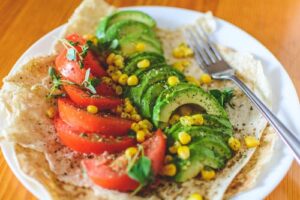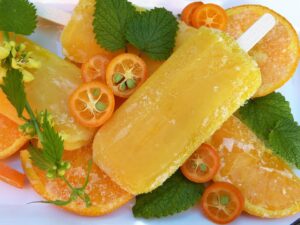Increasing focus on health and wellness, along with concern for the environment has prompted a surge in consumer adoption of plant-based and vegan diets in the past few years. As more people than ever adopt these diets, there has been an explosion of innovation among food manufacturers. This has led to an abundance of vegan and plant-based products in the market, giving consumers more choice than ever before. In the Restaurant industry, vegan options are being made available to attract customers. A Restaurant Consultant can help you design your restaurant accordingly.
The environment and animal welfare arguments are supported by research from Oxford University, which states that a vegan diet could be the “single biggest way” to reduce your environmental impact as a consumer, resulting in a significant drop in greenhouse gas emissions and reducing the loss of wildland to agriculture – one of the main causes of mass wildlife extinction.
We need to take care of the health and ethical drivers behind the move towards a vegan diet and examine good manufacturing practices (GMPs) for vegan products that will help vegan product manufacturers maintain the integrity of their vegan production lines and avoid the pitfalls of cross-contamination.

Vegan foods do not have a legal definition regarding what they can and cannot contain. This lack of definition legally allows manufacturers to label animal-derived. Product labeling remains an area of confusion. For people with allergies, the difference between ‘free-from and ‘may contain’ on a food label can be fatal. Therefore, there is a large difference in policies regarding vegan products, as some manufacturers have stricter guidelines for cross-contamination than others. Restaurants also need to take care of the vegan food that is prepared doesn’t get contaminated.
When it comes to vegan food choices, people look for products that do not contain animal products. Perhaps the most widely recognized and accepted certification in this regard is the Vegan Trademark. In 1990, the Vegan Society introduced the trademark that is designed to help people identify products that are free from animal ingredients. The trademark currently features more than 53,000 products worldwide including food, beverages, and cosmetics.

Products that display the trademark must demonstrate the below mentioned:
The manufacture and/or development of the product, and its ingredients, must not involve the use of any animal product, by-product, or derivative.
The development and/or production of GMOs must not involve animal genes or animal-derived substances. Products put forward for trademark registration that contains or may contain any GMOs must be labeled as such
Any dishes that are to be labeled vegan must be prepared separately from non-vegan dishes.
Prerequisite Programmes:
Prerequisite programs must be in place before a HACCP system can be implemented and should be internally audited, risk assessed, and verified. HACCP is is an internationally recognized method of identifying and managing food safety-related risk and, when central to an active food safety program, can provide your customers, the public, and regulatory agencies assurance that a food safety program is well managed. This is to ensure they are effective at preventing animal products and derivatives from contaminating a vegan product.
The specific prerequisites that should be taken care of if you are a vegan product manufacturer:

Approved and trusted suppliers – Supplier audits are essential for finding out which raw materials and allergens a supplier handles – including any corresponding cross-contamination risks. It is also important to have systems in place to be notified of any changes if a supplier starts handling additional allergens or animal-derived ingredients.
TACCP (food defense) – In today’s globalized marketplace, protecting consumers from food fraud and ensuring authenticity is an intercontinental task. The lack of traceability and insight into the ingredients contained in fraudulent food will mean that you cannot provide your customers with accurate information such as vegan and allergen-restricted dietary requirements.
Cleaning procedures – All cleaning procedures must be validated to ensure they are effective at removing traces of allergens, animal products, and animal-derived ingredients. Testing also highlights if any areas do not have effective cleaning methods, especially when machinery is cleaned in place and will not be taken apart as part of the cleaning procedure. Look for the relevant NSF registration on the products you select.
Product segregation – Ideally, vegan products should be manufactured in a separate area of the factory that is dedicated to producing vegan products only. This is not possible for every business; therefore, product segregation procedures must be in place to prevent cross-contamination. For example, some manufacturers use color-coding to ensure the segregation of products and raw materials. The effectiveness of your separation procedures must be demonstrable during an audit. Restaurant consultants in the early phase of setting up the cooking area can help you segregate the areas of vegan, vegetarian, and non-vegetarian food.
Product scheduling – In factories that do not have dedicated vegan product lines product scheduling can be considered. With this method, vegan products are manufactured first before products containing non-vegan ingredients, preventing the possibility of cross-contamination.
Comprehensive training for new employees, contractors and refresher training for old employees should cover good vegan manufacturing practices, vegan food safety policies, and food defense. We at HPG as restaurant consultant, help with guiding to design your perfect restaurant.